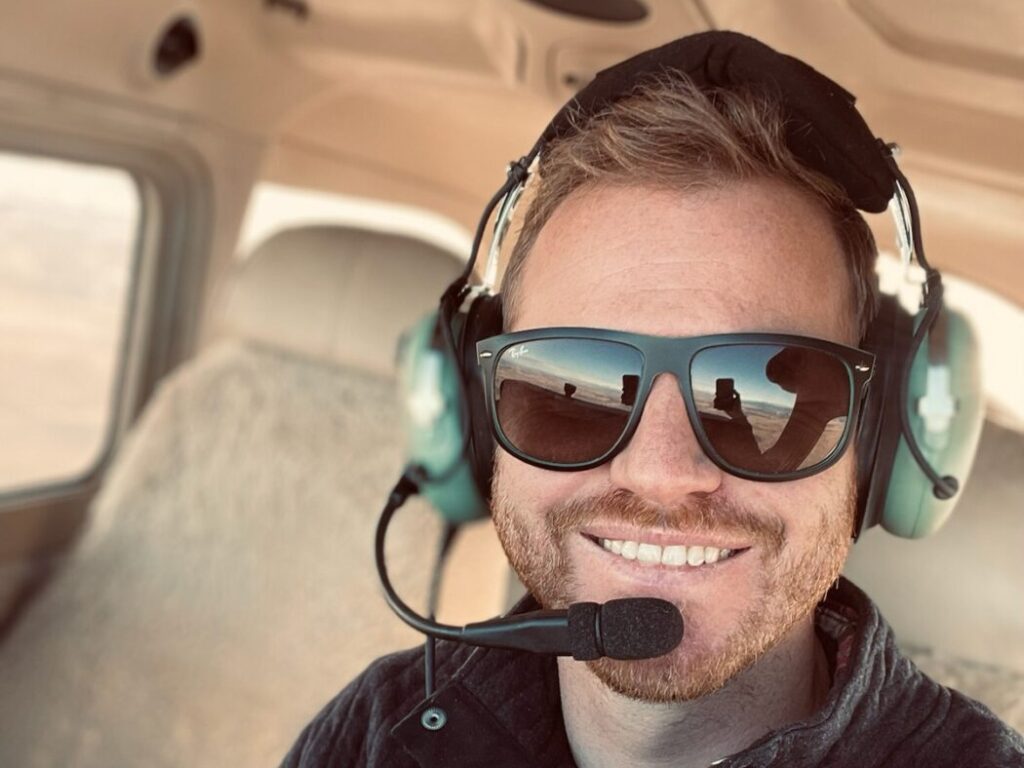Andrew Riesenberger - Flight Instructor
Western Air Flight Academy - KCFO
| Flight Instructor: |
CFI, CFII |
| Certificates Held: |
Commercial Single Engine Land, Instrument Rated |
| Education: |
Master of Geographic Information Systems : Pennsylvania State University Bachelor of Arts : University of Delaware Associate of Construction Technology : Community College of the Air Force United States Air Force Veteran |
Andrew grew up on the east coast and attended the University of Delaware for his undergraduate degree. After graduating, he joined the Air Force and served at bases in Korea, Italy, Las Vegas, and Niger. The skills he learned in the service brought him to Colorado for work upon separating. He was introduced to flying through a friend. He loved it so much that he wanted to pursue it as a career. He trained at BJC to earn his certificates and instrument rating and looks forward to instructing others so they can pursue and achieve their aviation goals. When he’s not flying, Andrew enjoys hiking, golf, snowboarding, and traveling.
5 useful questions to ask an instructor:
Why did you become a flight instructor?
Regardless of the answer, the way an instructor talks about why they fly is what is important. Look for
someone that is excited by teaching. They should have a genuine interest in giving others the gift of flight.
How long have you been flight instructing?
Some Instructors have thousands of hours under their belts and have been flight instructing for their entire
careers. Others have a few hundred and are just beginning. A seasoned instructor will have a lot of experience
but may have a set teaching style. A freshly minted instructor has less aircraft time but is able to relate to
common learning obstacles, having undergone their own flight training in the not too distant past. There are
advantages to both types of instructor.
How do you keep track of your student’s progress?
Using a syllabus is essential so that both student and instructor can track progress and milestones so make
sure your instructor uses one. Talk to other students and ask them what kind of reading their doing, what
books they’re using and the type of homework they’re getting. There should ALWAYS have some type of “homework”
assignment at the end of each lesson.
What is your availability?
Some instructors are part-time and work separate jobs during the week. Others are full-time, but may want to
have personal and family time on the weekends. Find an instructor with compatible availability. Flying at least
twice a week is the best way to progress quickly through accomplishments with less effort and less overall costs.
Choosing an instructor that is able to fly on the same schedule helps to keep flight training on a consistent path.
I’ve heard people talk about “stalling an airplane.” Can you tell me what it means?
This is a classic question. Regardless of knowing what an “aircraft stall” is or not, how an instructor explains
this concept will give great insight into how they can explain concepts. Are they patient? Do they use simple
terminology that is easy to understand? Do they ask questions to make sure their student understands, or do they
over simplify to brush off the question? Find an instructor whose instructing style is a good match.

